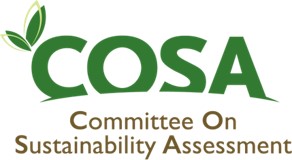Responsible consumption
- February 22, 2020
- P12: Responsible Consumption
- Tags: waste, consumption, recycle, reuse, plastics, materials, environment, cosume, responsibility
The concept of sustainable consumption and production was adopted in 2002 at the World Summit on Sustainable Development (WSSD).
It was identified as one of the three overarching objectives of, and essential requirements for, sustainable development, together with poverty eradication and the management of natural resources in order to foster economic and social development.
Fundamental changes in the way societies produce and consume are necessary for achieving global sustainable development.
Worldwide material consumption has expanded rapidly, which seriously affects the achievement of Sustainable Development Goal 12 and the Goals more broadly. Urgent action is needed to make sure that the planet’s current material needs do not lead to the over-extraction of resources or to the degradation of environmental resources. We really need government plans and rules that improve efficiency, reduce waste and promote sustainability practices across all sectors of the economy.
In 2017, worldwide we consumed or used 92.1 billion tons of material. This reflects the increased demand for natural resources that has defined the past decades, resulting in undue burden on environmental resources. Without urgent political action, resource extraction could grow to 190 billion tons by 2060.
Material footprint is the amount used or consumed by each person. In 1990 around 8.1 tons of natural resources were extracted to satisfy a person’s need, but in 2015, that amount was almost 12 tons per person. The last few decades have been a time of dynamic changes across the world, with millions of people lifted out of poverty and a number of countries reaching middle income status. However, these achievements and changes have come at a significant cost to the environment. Increasing demand has meant fewer resources, pollution, environmental degradation and climate change. This is pushing the earth towards its environmental limits.
With humans now consuming more resources than ever before, the current patterns of development across the world are not sustainable.
Moving towards Sustainable Consumption and Production (SCP) is about fulfilling the needs of all while using fewer resources, including energy and water, and producing less waste and pollution.
It can contribute to poverty alleviation and the transition towards a low carbon, green economy and is essential for improving the lives of the world’s poorest people, who depend so closely on the natural resources provided by their environment. SCP can lead to an improved quality of life and greater employment opportunities, complementing poverty reduction strategies.


© Copyrights 2024 All Rights Reserved. 17Promises




